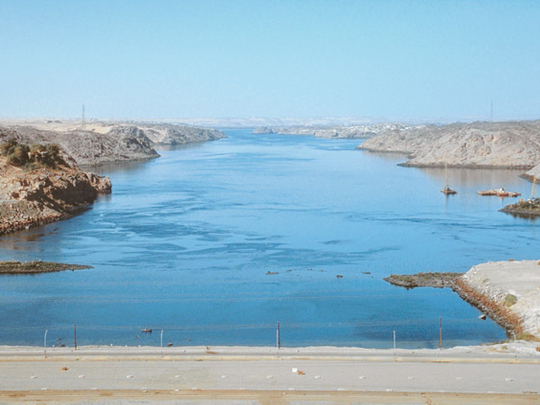
Prophet Mohammad (PBUH) has said that Muslims must share water resources and grazing land. Thus from the point of view of Islam, which is the dominant religion in the Nile Basin (around 70 per cent of its inhabitants are Muslim) water was originally created as a shared natural resource, an asset for humans and other creatures. It is only in very rare cases (other than rivers and shared underground water) that one can keep water as personal property.
In addition, it is forbidden to sell water. Charges may only be levied to recover operational costs. Sadly, in western and some other cultures, many support the selling of water. Imagine poor people who can't even afford food and clothing being burdened by having to pay for water.
In fact, the argument made by the upstream countries can also be made by Egypt to claim a larger share of the Nile water. Cairo can say that the present agreements are old, and the water needs of its increasing population are growing tremendously.
These claims can be supported by the fact that Egypt and Sudan are the Nile Basin's most arid countries and are thus heavily dependent on the river. Historically, Egypt has cooperated in and funded many water-related projects in the upstream countries.
Egypt has made it clear that the countries along the Nile should cooperate to get its maximum benefits, particularly as significant water loss occurs along the river's path. There are instances when governments have agreed to share water that flows between their countries.
The Nile Basin Initiative (NBI) started in 1999 has been a catalyst for cooperation in the search for a new legal framework to manage the Nile. A new 2010 Cooperative Framework Agreement (CFA), now signed by most of the key upstream countries, seeks to give all riparian states equal access to the Nile's resources.
Egypt and Sudan, however, have refused to sign this agreement.
Last year, Ethiopia completed the building of the Tekeze Dam, which at 188 metres is the highest dam in Africa. This hydro-electric power project was financed by China and Italy and executed by the Ethiopian Electric Power Company in cooperation with China.
But this dam may have the catastrophic environmental impact usually associated with such mega projects. It will destroy the livelihood of some 500,000 people by flooding a huge area and creating a 150-kilometre-long lake that will prevent people from sowing crops on the river's flood plains as they have done for many generations. Besides, there is the fear that the dam will reduce the flow of water.
In short, the project comes at the cost of the people when the main point of the exercise should have been to improve their quality of life. In fact such projects, and the CFA, are like a death sentence to a nation like Egypt.
Don't we have international human rights and water rights for all individuals on Earth?
Playing politics
It is very strange that such a project is supported by countries such as China and Italy as we always hear official statements about how strong Egypt's relations are with these countries. Such projects suggest the contrary.
It is worth mentioning that the Egyptian government did a wise thing by not overreacting, but it must not lessen and underestimate these dangers. In fact, a new diplomacy for this phase should be developed.
On the other hand, it is well known that Israel's agenda is to keep Egypt in particular, and the whole Arab world in general, busy with small problems and conflicts, and divert attention from the central Arab cause.
So Tel Aviv is working eagerly to convince and support Ethiopia and other upstream Nile countries to execute projects along the river. Israel has also urged them not to commit to the old Nile river treaties. And the US is supporting and helping Israel to do so.
Scientifically, there is enough water for every single living creature and country on earth, globally and regionally. The Nile Basin is no exception. It is a matter of better management and cooperation between these countries to best utilise the shared water resources.
So, historically, legally and environmentally, there is no real problem. Therefore one can understand this tension over the Nile River only if we take into account the broader political picture that includes tension in the Horn of Africa (Somalia and South Sudan) and even inside countries like Ethiopia and Sudan.
In fact, the water issue is very serious, and will not only affect the national security of Egypt and Sudan, but also the whole Arab world. Add to this the potential negative consequences of the divisions within Sudan, wherein south Sudan will control most of the water resources and northern Sudan will be in a position identical to that of Egypt.
Arab national security is already affected by the conflicts in Iraq, Somalia, Morocco, Lebanon, Yemen and Sudan. Some Gulf countries can play a very important role in bringing about a consensus among the Nile riparian countries, especially in view of the fact that they already have good relations with as well as substantial investments in the upstream countries.
Dr Mohammad Abdel Raouf is an independent environmental researcher.










